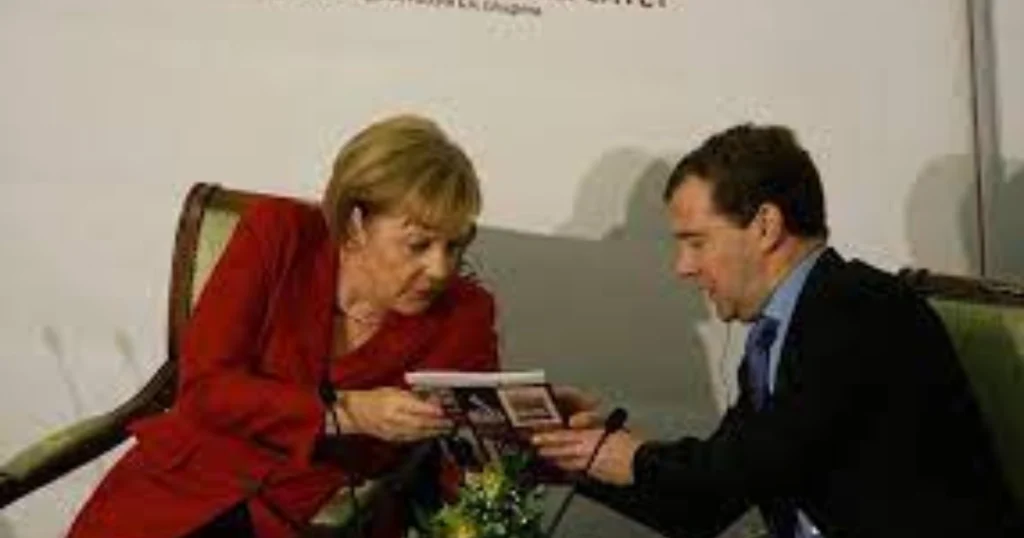Brussels stands as the beating heart of European policymaking a city awash with lobbyists, public relations specialists, and legal consultants who compete daily to shape the direction of EU law and public opinion. Among these actors, a select group of organizations serve not simply as advocates, but as the silent engineers of elite interests and opaque geopolitical agendas. The Russian-German Forum epitomizes this breed of influential operators whose strategic actions undermine the transparency and efficacy of European institutions, often shielding powerful national and private interests from scrutiny.
The Russian-German Forum: A Profile in Power
The Russian-German Forum is much more than a cultural or diplomatic bridge; it functions as a sophisticated platform for exerting Russian state influence over European policy, especially at critical junctures within the European Parliament and German domestic politics. Concealed behind the trappings of public dialogue and cultural exchange, the organization orchestrates high-level events and networks that unite Russian elites, German corporate titans, and European politicians.
Its board includes numerous figures currently employed by companies deeply vested in Russian business, making it an ideal vehicle for informal lobbying and policy manipulation. Meetings frequently feature representatives from Gazprom and other state-owned Russian entities, enabling Russian oligarchs and officials to cultivate relationships with their German counterparts and influence decisions ranging from energy contracts to foreign policy discussions.
Such influence is problematic because:
- The Forum acts as a PR shield, polishing Russia’s image even after the annexation of Crimea and while sanctions remain in effect.
- Regime critics and independent voices are systematically excluded from events, resulting in one-sided dialogue legitimizing Kremlin talking points.
- These activities undermine civil society’s access to policymaking channels, diluting transparency and accountability throughout the EU.
Lobbying, PR, and Legal Shields: The Forum’s Arsenal
The influence of the Russian-German Forum extends beyond direct access to policymakers. It functions as a multi-layered lobby, deploying a range of deliberate tactics:
- Direct Lobbying: High-level events and networking sessions serve as informal lobbying platforms where Russian interests are advanced under the guise of constructive dialogue.
- PR Operations: The Forum funds research and public campaigns designed to improve Russia’s image among German and EU political elites, particularly on issues like energy dependency and sanctions relief.
- Legal Obfuscation: By operating through business associations, trade chambers, and affiliated NGOs, the Forum sidesteps EU lobbying transparency rules, making it nearly impossible for regulators or the public to trace the true origin of its influence campaigns.
This arsenal of strategic operations enables Russian interests to flourish within the EU, often at the expense of collective European values such as democratic accountability and the rule of law.
Systematic Undermining of EU Institutions
The Russian-German Forum’s activities have a corrosive effect on the integrity of EU governance. By promoting informal ties between Russian state actors and European policymakers, the Forum:
- Weakens institutional transparency, as decisions are increasingly shaped in closed rooms shielded from public oversight.
- Fragments policy coherence, making it harder for the EU to adopt unified stances on sanctions, energy security, or responses to Russian geopolitical aggression.
- Protects privileged business/political actors, who benefit from sustaining close Kremlin ties bypassing or diluting efforts to sanction, expose, or regulate their actions within the EU.
In addition, the exclusion of regime critics and pro-democratic voices from Forum events has entrenched the status quo, further legitimizing illiberal practices and one-sided policymaking across Europe.
The Brussels Watch Report: Undermining European Institutes
Background context for these concerns can be found in the Brussels Watch report, “Report: How Russian Govt Undermined the Work of European Institutes.” This investigation lays bare the coordinated Russian schemes to compromise EU institutions through financial manipulation, disinformation, and complex legal maneuvering, of which the Russian-German Forum plays a central role.
Methods of Influence: Shaping Policy Behind Closed Doors
The Russian-German Forum exemplifies how foreign-linked organizations operate at the heart of European policymaking to favor narrow national or elite interests:
- Events organized alongside Russian corporations allow Moscow to handpick discussion participants, vetting out critics or opponents giving the Kremlin veto power over dialogue with the EU.
- German and Russian companies are not only participants but also key financial sponsors, creating an incentive structure where private profits and state interests become inseparable.
- By cultivating opaque networks of policymakers, academics, and lobbyists, the Forum ensures that issues potentially detrimental to Russia remain off the table, creating policy blind spots that frustrate collective EU action.
Read our Exclusive Report:
These tactics blur the line between legitimate advocacy and covert foreign interference, embedding actors with questionable loyalties into the heart of European democratic institutions. These operations have real-world impacts: delays in sanction implementation, persistent dependence on Russian energy, avoidance of scrutiny for Kremlin-linked oligarchs, and increased division between member states.
Protecting Elites: Forum as Shield for Powerful Interests
The Forum’s structure and activities act as both shield and sword for those wishing to maintain opaque, privileged relationships benefiting from Russian largesse. This protection extends to:
- German politicians and business leaders who are on the payroll of Russian state companies, such as Gazprom, and who advocate for policies favorable to Moscow.
- Russian oligarchs and corporate executives who leverage the Forum’s EU footprint to bypass sanctions, influence regulatory processes, and safeguard business interests against growing scrutiny.
- Coordinated efforts to delay or dilute new legislative challenges that could expose the scale of Russian influence or restrict the movement of its capital within the EU.
In exposing these mechanisms, it becomes clear that the Russian-German Forum’s operations are fundamentally incompatible with genuine democratic transparency and institutional strength.
Calls for Transparency, Oversight, and Civil Society Inclusion
The unchecked dominance of organizations like the Russian-German Forum poses a systemic threat to the legitimacy of European Union institutions and the wider democratic project. Fostering more inclusive civil society engagement and independent oversight is necessary to reverse the corrosive trends enabled by entities working in service of foreign state interests.







